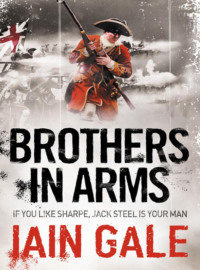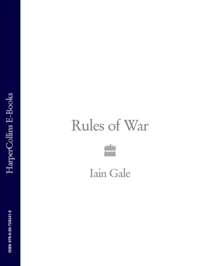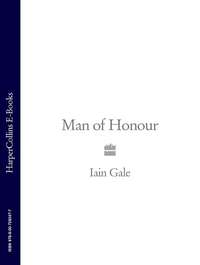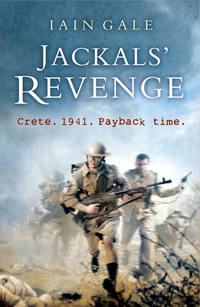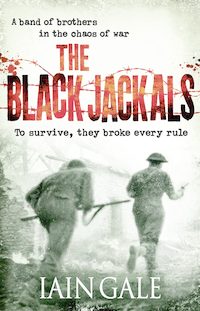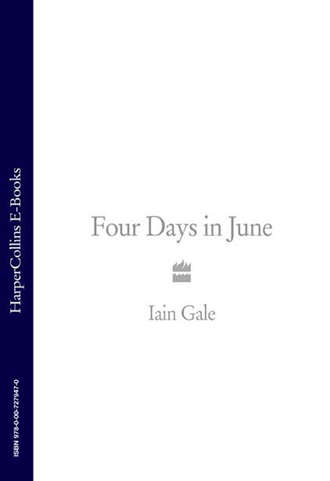
Полная версия
Four Days in June
They had spoken of the old days. Of Friedland, Eylau, Borodino. Not, predictably, of Spain. And then it was that he remembered just how much he loved that man. How long he had loved him. How he would have done anything for him. Still would. They were the same age and for the past twenty years their fates had been intertwined.
A sergeant-major under the last King Louis, by 1794 Ney has risen to major in the Republic, received the first of many wounds and by the age of twenty-six was colonel of his regiment – the 4th Hussars. By 1797 Ney was a general de brigade.
It was Napoleon, though, who had made him. Created him first, in 1801, Inspector-General of all France’s cavalry. In May 1804, on the day after Napoleon had been declared Emperor, he had made Ney a marshal. Four years later he was a duke. His service in Russia, commanding the heroic rearguard on a retreat that had cost the lives of half a million men, had earned him the unique title ‘Prince de la Moskowa’. And Ney knew himself to be a ‘prince among men’. Knew that his presence on a battlefield could inspire men to undreamed-of feats of bravery. That his name alone could win a battle.
It did not surprise Ney that no mention had been made that night at Avesnes, or since, of the fact that before his return to the fold Ney had sworn to Louis XVIII that he would bring Napoleon back to Paris ‘in an iron cage’. That was all in the past now. There was a war to fight. A war to win.
The following morning, with no horse of his own, Ney had followed the General Staff to Beaumont in a peasant cart. And then at Charleroi, only this afternoon, a smiling Napoleon had given him command not of a mere corps but of the entire left wing – more than a third of the army. And in addition, to his amazement, the light cavalry division of the Garde – the finest cavalry in the world. His orders were merely to ‘go and drive the enemy back along the Brussels road’. Jubilant as a child, Ney had taken Mortier’s horse and ridden fast to join Reille’s II Corps at Gosselies. And so here he was, standing with the few staff he had as yet assembled, on the rising ground above the little river Piéton, looking north.
Ney felt energized, more alive in fact than he had in years. Yet he was also more than a little alarmed. He had been given no specific insight into the Emperor’s plans and had had no time to formulate his own, to conduct any reconnaissance, even to meet his own staff. He knew most of them, of course – d’Erlon, Piré and Lefebvre-Desnouettes he had served with in Spain. But Reille was known to him only by hearsay – as the Emperor’s former aide. And within Reille’s corps was a wild card. The Emperor’s brother, Prince Jerome, the now ex-King of Westphalia, had been given a division – the largest in the army. He had a reputation for rashness, and Ney was anticipating problems.
He had left his own personal aide, his old friend and confidant Heymes, at Charleroi, to improvise the rest of the headquarters staff and follow on as he could. He knew that he must win this battle, this war. For if he lost, if the Emperor fell again, then his fate could only be a dawn appointment with a firing squad.
And things were not going according to plan. Despite the vagueness of the Emperor’s orders, one thing which had become clear to Ney from even a cursory look at the map was the strategic importance of a small crossroads astride the roads from Charleroi to Brussels and Namur to Nivelles. This junction, the village of Quatre-Bras, must, he felt, be taken by nightfall. But here at Gosselies he was still some 8 kilometres short of it, confronted by a force of uncertain number and with no way of achieving his primary objective.
‘We must consolidate, Rollin. We must push further. Establish the extent of their forces.’
‘Quite so, sir. But it is getting late and our men are tired and widely dispersed.’
He was right. The sun was sinking. It had been an exhausting day. And not without its flashpoints. Ney’s first action on assuming command had been to send one division of Reille’s corps to the north of the town to repel a Prussian attack. They had inflicted reasonable casualties and captured a dozen regular infantry, who revealed that they were part of Steinmetz’s brigade, Ziethen’s corps.
That had been at 5.30. Three hours ago. Quickly, Ney had divided his men, sending Girard’s 7th Division off in pursuit of the Prussians, who halted to the north east, at Wangenies. Just over an hour ago he had sent off General Lefebvre-Desnouettes and the Garde cavalry to reconnoitre around Frasnes. Now he held in his hand the report from Colbert, flamboyant colonel of the Garde’s Polish lancer squadron.
They had met ‘some resistance’ from within the farm buildings at Frasnes but had found no one beyond there, at Quatre-Bras, and had returned to the main force. Ney had immediately moved off a battalion of infantry to Frasnes and soon ejected the enemy. He was unclear again, though, as to exactly whom they had encountered and in what numbers. He looked at the report. Green uniforms, red facings, black busby. He showed it to Rollin.
‘What do you make of that?’
‘Nassauers, sir. Grenadiers. Wellington’s men.’
‘What do we know of them? What unit? See if you can find out.’
So. He had found Wellington’s advance guard. If that was what it was and nothing more. Even as he waited for more details a courier pulled up with another note, direct this time from the hand of Lefebvre-Desnouettes.
Monseigneur.
Frasnes we found occupied by around 1,500 infantry and eight cannon. Not those from Gosselies. These men are under the Duke of Wellington’s orders. Nassauers. The Prussians from Gosselies have gone on to Fleurus. Tomorrow at dawn I will send out a reconnaissance party to Quatre-Bras, which will occupy that position. I believe that the Nassau troops have now left. The peasants have told us that the Belgian army is in the vicinity of Mons and the headquarters of the Prince of Orange at Braine le-Comte.
It was somewhat garbled. But Ney thought that he understood what was meant. The Prussians had, as expected, retreated not towards Brussels but eastwards, in the direction of Fleurus, where their main army was evidently assembling. And Wellington? Wellington was somewhere to the north.
He was haunted by the man. Had encountered him first in Spain, at Bussaco. And just as Spain had been Wellington’s triumph, so it had been Ney’s undoing. The only smear on an unblemished military career. Massena’s fault. And then, amazingly, Ney had happened upon the Duke while out walking with Aglaé a year ago, in the Bois de Boulogne. Some months later he had made a now embarrassing outburst against Wellington in the Tuileries – bombast, and what amounted to a challenge. The words rang in his ears:
‘Let him meet us when luck is not in his favour. Then the world will see him for what he is.’
Perhaps now, at last, they would discover the truth of that boast.
Tonight, however, it was too late to move. Past nine o’clock. Desnouettes was right. The morning would do. The Nassauers would have run off with news of their encounter and Wellington would surely be hurrying to consolidate around Brussels. What to do? He thought of his mentor, Baron Jomini, France’s master tactical theoretician. Tried to imagine what he would do in such a situation.
Ney decided to pull back the infantry to Frasnes. He had heard firing from the direction of Gilly. That surely must be Napoleon engaging the Prussians? It was more imperative than ever now that his own force should remain secure. Besides, if his staff were to be believed, his men were dropping with fatigue. They had been on the march since three that morning. He considered his position. Napoleon and the right wing were on his flank, engaging the Prussians. His own command was strung out across more than fifteen kilometres, between Marchienne and Frasnes. The heavy cavalry under Exelmans was near Campinaire, and some distance behind them came the rest of the army. Yes. It was time to rest.
‘Dinner, sir?’ It was Heymes, at last, arrived from Charleroi.
‘Of course. Dinner. Where?’
‘A house, not a hundred metres away. In the Rue St Roch. The only place still occupied – with food and a fire. We could walk there.’
‘Fine.’
The little house looked out of place amidst the debris and chaos of war. A fairy-tale house – smoke at the chimney and flowers around the door, which was open. Ney entered and found inside a family, neatly turned-out and drawn up, almost as if for inspection. He felt faintly embarrassed. Smiled. Heymes spoke.
‘His name is Dumont, sir. He’s a clerk in the town. His wife. Their children.’
The couple looked terrified. The children less so. Four boys, thought Ney. A curious coincidence. He looked for a moment. The woman was pretty in a charming, petit-bourgeois way. Not like his own Aglaé. Her husband looked sound, if somewhat round shouldered, with an air of indignant confidence. He was no soldier, though.
The boys were roughly the same ages as his own. Good-looking too. He compared them – Napoleon, twelve, Louis, eleven, Eugene, now seven, and young Henri, just three. He thought of them all at Coudreaux, where even now Aglaé was perhaps helping their cook with the supper. The vision led him into foolish thoughts of their life together and everything with which they had been blessed over the last thirteen years.
They had met through the Empress Josephine, who, much taken with Ney, had begun to matchmake immediately for her young friend, pretty Aglaé Auguié, whose father had been one of Louis XVI’s finance ministers, and whose mother, in that vanished other-world, was lady in waiting to Marie-Antoinette. As a child she had survived the Terror and her mother’s suicide, precipitated by the execution of the Queen. Ney loved her for it. For her bravery. But more than this he loved her for her beauty – physical and spiritual. He touched his breast pocket, felt inside the shape of the miniature of her portrait by Gerard – the companion to his own.
He thought of their Paris house at the height of the Empire. Of his apartments overlooking the Seine. Of rooms crammed with mirrors, Aubusson tapestries and crystal chandeliers. Of the paintings – he had a particular taste for seventeenth-century Flemish art. Of his library, with its volumes of Racine, Rousseau and above all military theorists. Of their lavish candlelit receptions, thronged with painters, musicians, writers – Gros, David, Girodet, Gerard, Spontini, Gretry, Stendhal, Madame de Stäel.
He found that he had been gazing blankly at a crucifix on the wall and turned again towards Dumont’s four boys. Wondered when again he might give his two youngest piggybacks around their farmyard. Thought of their future together. All the pleasures that lay in store. Of taking them fishing; hunting wild boar; helping with the harvest. Then, becoming suddenly and unpleasantly aware of his own mortality, of the possibility of there being no future, he cast the vision from his mind. Smiled. Waved his hand towards the uncertain Belgian children.
‘Please, please. Do not be afraid. Thank you for your hospitality. Please just behave as you would normally. Pretend we are not here. Ignore us.’
Absurd, of course.
Food arrived. Bread, cheese, bacon, wine, brought in by the lady of the house. The srvants had fled. Ney gave her a smile. 0Rollin entered.
‘The Nassauers, sir. We believe them to be part of Wellington’s 2nd Division; Perponcher’s men. The Prince of Saxe-Weimar’s brigade. They might be part of a force as strong as 8,000. But I have to say that we believe it probable that they have now rejoined the main army.’
‘My thoughts exactly. Thank you. Join us?’
Local wine. Thin and lacking substance. What he would give for a good glass of Calvados. Noticing a flute hanging on the wall, he turned to his nervous host.
‘You play?’
‘A little, sir. When I have the time.’
‘I too. When I have the time.’
He laughed and thought again of home. Of Aglaé at the piano and of himself struggling with the flute. He thought of her sweet voice. Her taste for Italian arias. Don Giovanni. That divine duet – ‘La ciderem lamano’. He began to hum the melody.
Dumont’s house, he thought, was the epitome of petit-bourgeois – safe, dependable. And now, as Ney relaxed into a reverie, it took him back further to another, similar household, many years before. To a cosy parlour in the Saar where a father, a barrel-cooper by trade, would speak in German and French of the virtues of France, the glory of battle. How he had been proud to fight for King Louis against the Prussians. An image came to him of a small boy, ruddy-faced and with bright blue eyes, who, having listened spellbound to tales of war, had pursued his dreams of glory into the Song of Roland, the tales of Charlemagne, his knights, another empire. An image of a hot-headed boy of eighteen who had gone against his father’s wishes and joined the army. The army of France in whose ranks his German accent had quickly disappeared and in whose service, in the uniform of a hussar, a quarter of a century ago, he had first ridden to glory. So long ago.
Mozart’s aria was going around and around in his head. So too was an unpleasant thought which had come to him as he ate. Why should the Nassauers have rejoined the main force? What if they were still there at the crossroads? What if the cavalry reports were muddled? It happened. Might they not mean that the enemy had left not Quatre-Bras – which he saw now was the key to the road, and the flank – but merely Frasnes? Looking out of the open window Ney saw that, although night had fallen, the street was still well illuminated by the cold light of a full moon. He stood up.
‘Heymes, my horse. We will ride to Quatre-Bras. I cannot rest until I see for myself our precise position.’
‘Sir, it’s dark. Surely?’
‘The moon will suffice. Monsieur Dumont, thank you for your hospitality. I believe that a bed has been arranged for me here? You are very kind. Madame.’ Giving a quick bow he left the house.
Outside, with Heymes and the two aides, Ney mounted his waiting horse. With a small escort, found grudgingly by a half-troop of the First Chasseurs, they rode in silence the few kilometres to the crossroads. At Frasnes Ney caught the familiar stench of a recent battle – putrefaction and powder-smoke. Trotting along the street they passed occasional groups of Garde cavalry – chasseurs and lancers – some snatching what sleep they could, others eating, drinking, talking. The marshal and his party went unremarked.
It was ten o’clock when they reached the French advance lines, to be greeted by a single sentry and a somewhat startled Lieutenant of Lancers. Quickly the little group dismounted and walked towards the front. Through the darkness, across the fields, Ney could see the fires of the enemy pickets. He counted them. Swore quietly. No. The Nassauers had not left. Were still here. Encamped in fact, it seemed, in some force. To his left Ney could see the bulk of a large wood and in the centre and on the right the dim shapes of three sizeable complexes of farm buildings. The crossroads itself lay straight ahead. It looked, as he had supposed it might, ominously like a highly defensible position. He began to run through the dispositions of his troops.
‘Rollin, where is Bachelu’s division?’
‘Two kilometres to the east, at Mellet, sir.’
‘And Prince Jerome?’
‘Ransart, sir.’
‘And Piré’s cavalry?’
Another aide: ‘At Heppignies, sir.’
‘Count d’Erlon’s corps?’
‘His headquarters have been established at Jumet, sir.’ Rollin again. ‘But half of his divisions are strung out along the route, one at Marchienne, another at Thuin. Jacquinot’s cavalry we believe to be somewhere near Binche.’
Ney sighed. ‘And Reille?’
No one was entirely sure where the rest of Reille’s corps was. Ney swore again. Audibly now. He realized that he could not after all afford to rest. He would himself ride at once to Charleroi. Must attempt to glean more precise directions from the Emperor. Must be allowed to know more detail of his plans. His mind was addled, confused. The ride there and back would clear his head. Without a word, he walked back to his horse and remounted.
‘You have the time, Heymes?’
‘10.30, sir.’
It would be close to midnight before he reached Charleroi. It was going to be a long night.
FOUR
Brussels, 1.30 a.m. De Lancey
De Lancey sat at the unfamiliar bureau of his borrowed office in the house near the Parc and rubbed at his face and eyes. It had been a frantic evening. Unpleasantly warm for the time of year. At around nine o’clock a message had arrived from Blücher telling Wellington that he was now en route to Sombreffe and preparing to face Bonaparte there. Another came an hour later, from General Dörnberg, commander of the Hanoverian cavalry and senior intelligence officer at Mons. Still nothing though from Grant. Dörnberg reported that there were no enemy directly before him. In his opinion the entire French army was now focused on Charleroi. But surely, thought De Lancey, this was old news? The French might by now be long past Charleroi. In effect they were, all of them, chasing shadows.
Wellington, however, had at last seemed sure that he knew what Napoleon intended. Shortly after ten he had sent for De Lancey and given his ‘after orders’ – a common practice. De Lancey had found the Peer in blue velvet carpet slippers, a silk dressing-gown over his shirt, preparing for the ball already in progress in the Rue de la Blanchisserie. The Richmonds had taken a house in the Rue des Cindres and in this small street to the rear the Duchess had found the perfect venue for their dance – the workshops of a coach-builder. That afternoon the old carriage works had been cleaned by a fatigue party of defaulters and decked out with all the frivolity of an English village fête. Reports of the spectacle had been coming to De Lancey for the past two hours as his officers, beginning to return from their various dispatch rides, had managed brief sorties to the gilded assembly. No sooner had they gone though than he had been compelled to summon them back to deliver these fresh orders personally.
The ‘after orders’ were clear enough: The 3rd Division would continue from Braine-le-Comte to Nivelles. The 1st Division, the Guards, was to move at once from Enghien to Braine-le-Comte. The 2nd and 4th Divisions were to move to Enghien, as was the cavalry.
De Lancey detected a general sense of urgency, but realized that the Peer remained convinced that the real French threat was to his right wing. He was pondering the probability of this when, quite unannounced, out of breath and without knocking, Will Cameron burst into the room.
‘What the deuce? Will?’
‘Sir. More intelligence. I come directly from the ball. From Lord Wellington himself. The French have taken Charleroi, sir. Even now are marching on Brussels. Their pickets have been at Quatre-Bras. The message was timed at 10.30, sir. It comes direct from General Rebecque. The Peer has left the dancing, sir. We are to order a general state of readiness.’
‘What news from Grant?’
‘None, sir. Only this from Rebecque. And direct from the front. The ball is finished, sir. Officers are to return to their units. We are to prepare to advance.’
‘Calm yourself, Will. If the Peer has not yet received news from Colonel Grant, he will not order a general advance.’
‘No, sir. Yes. I mean. Quite.’
‘We will merely proceed with the after orders that he has already issued – a concentration upon Nivelles. Unless he gave you to understand otherwise?’
‘No, sir. That is indeed his intention.’
‘Well then, I suggest that you find yourself somewhere to catch a few hours’ sleep. You will certainly be needing them in the coming days. Take one of our rooms. Goodnight, Will.’
‘Thank you, sir.’
After Cameron had left, De Lancey looked again at the map – the old, inaccurate 1790s survey of the area by Ferraris and Capitaine – spread out on the table in the centre of the room. It was still just possible. A feint. He understood Wellington’s caution. What if he was right and Napoleon had called his bluff? Intended to divert the Anglo-Allied army to the east and then turn its flank? He walked towards the door, intending to find Magdalene and possibly a few hours’ rest. As he went to turn the handle, however, the door flew open and he came face to face with General Dö rnberg, behind him an aide. Both of them hatless, dripping in sweat, reeking of horses and brandy. The general was in a state of some distress.
‘My God, De Lancey. I have come from Mons. Oh God, De Lancey. What have I done? How could I have been so foolish? We must go at once to Wellington.’
In the entrance hall of the house on Rue Royale most of the evening’s candles had already been extinguished. In the half-light they were greeted by Wellington’s secretary, Fitzroy Somerset, still fully dressed. De Lancey spoke quietly.
‘Somerset, we must see his Grace. Immediately. We have grave news.’
Without a word, Somerset hurried them along the dark corridor and up a long flight of steps to the Duke’s bedroom. Entering before them, a few seconds later he showed them both in. Wellington was sitting straight up in bed. He fixed De Lancey with a hard stare.
‘Well then, gentlemen, what is it?’
Dö rnberg spoke. ‘Your Grace, I am afraid that I have been terribly amiss. I am aware that throughout the day you have sent me constant reminders that, should I hear from Colonel Grant or his agents, I should waste no time in at once letting you know. I am afraid, sir, that I have not done so and have only now realized my grave error.’
Wellington said nothing. Dö rnberg continued: ‘It is now clear to me, sir, that yesterday, at about midday, a report which I assumed had simply come to me from a commonplace French Royalist agent was in fact from an agent of Colonel Grant himself. In consequence, sir, I sent you an edited version. I see now from his agent’s description of the dispositions of Bonaparte’s troops that they were without doubt heading directly for Charleroi. For the chaussée running between ourselves and the Prussians – the highway into Brussels.’
Dörnberg stared awkwardly at the floor. Wellington took in a deep breath. Said nothing to Dörnberg but turned to De Lancey.
‘Quatre-Bras, De Lancey. You will order the entire army to collect on Quatre-Bras.’
My God, thought De Lancey. You have been caught out. D’Alava was right. Bonaparte has fooled you and even now is closing with the Prussians while we are too extended to offer any immediate help.
They left Wellington to sleep, Dö rnberg calmer now. Chastened, reprimanded, conscience salved. They rode back to De Lancey’s house, and for the first time since he had arrived in Brussels the Quartermaster General began to worry.
Outside the De Lancey house Dörnberg bade goodnight and rode off to alert his officers. The lights were still lit and Magdalene and the staff all quite awake. For, although the dawn was not yet risen, in the past hour all Brussels had come to life. She met him in the doorway.
‘Oh, William, you must come and look. It is so exciting. So glorious.’
Taking him by the hand, like an eager child on Christmas morning, she led him up the great staircase, into the drawing room and out through the open window on to the balcony.
All across the city drums beat an insistent and cacophanous stand to. Bugles called. Looking into the street he saw soldiers of all ranks, all regiments, spilling out of their billets, some with their erstwhile hosts, a few carrying children high on their shoulders. All was a clatter of soldiers, officers, horses, gun carriages, wagons.
The sky, catching the first rays of dawn, bathed the marching figures in a strange pale light, giving them an unearthly pallor. The morning was a cool and refreshing contrast to the stifling humidity of the previous day and, his tasks finished for the time being, the army about its business, De Lancey too felt refreshed and allowed himself a moment of relaxation as the couple watched in awe as the spectacle unfolded before them.


